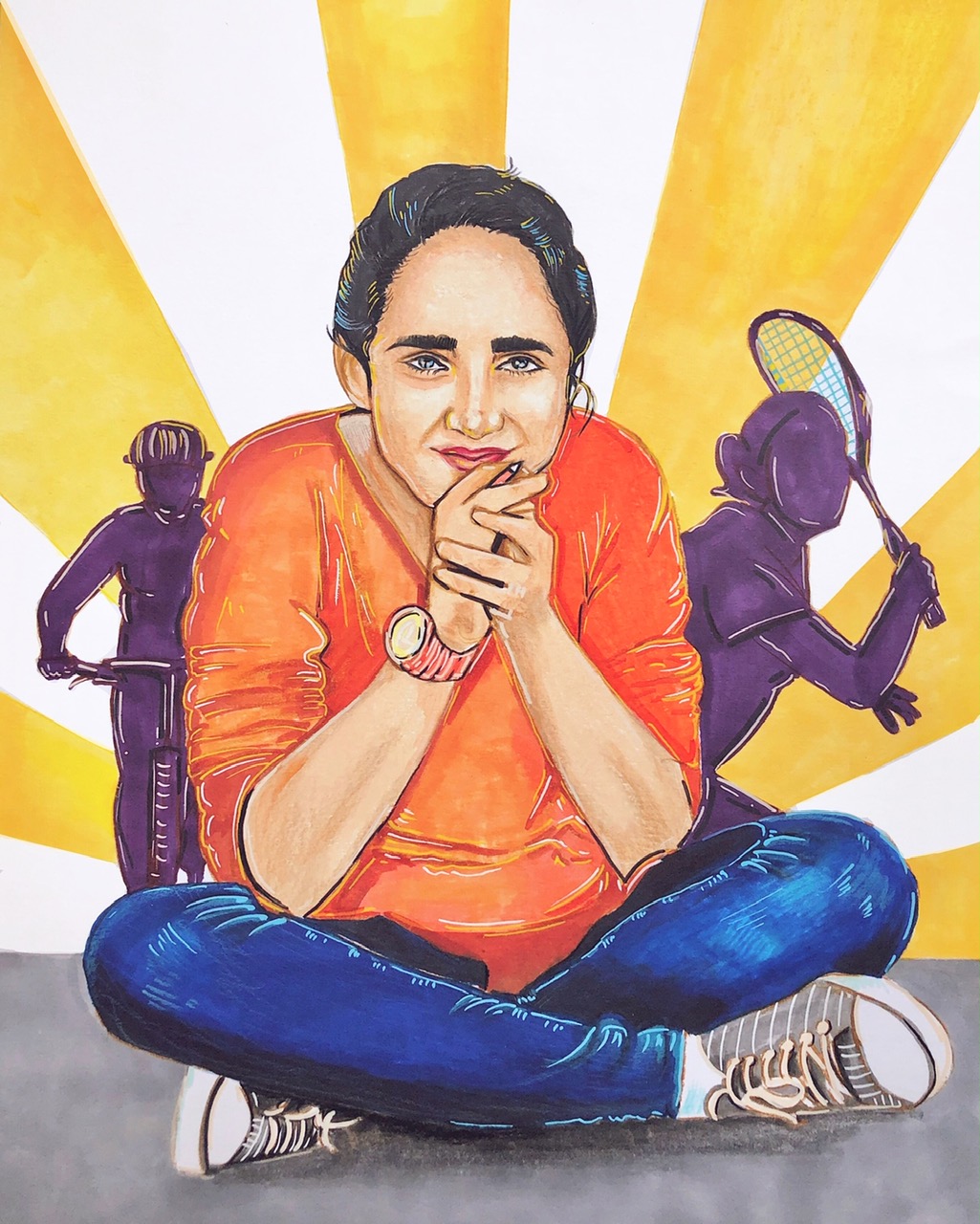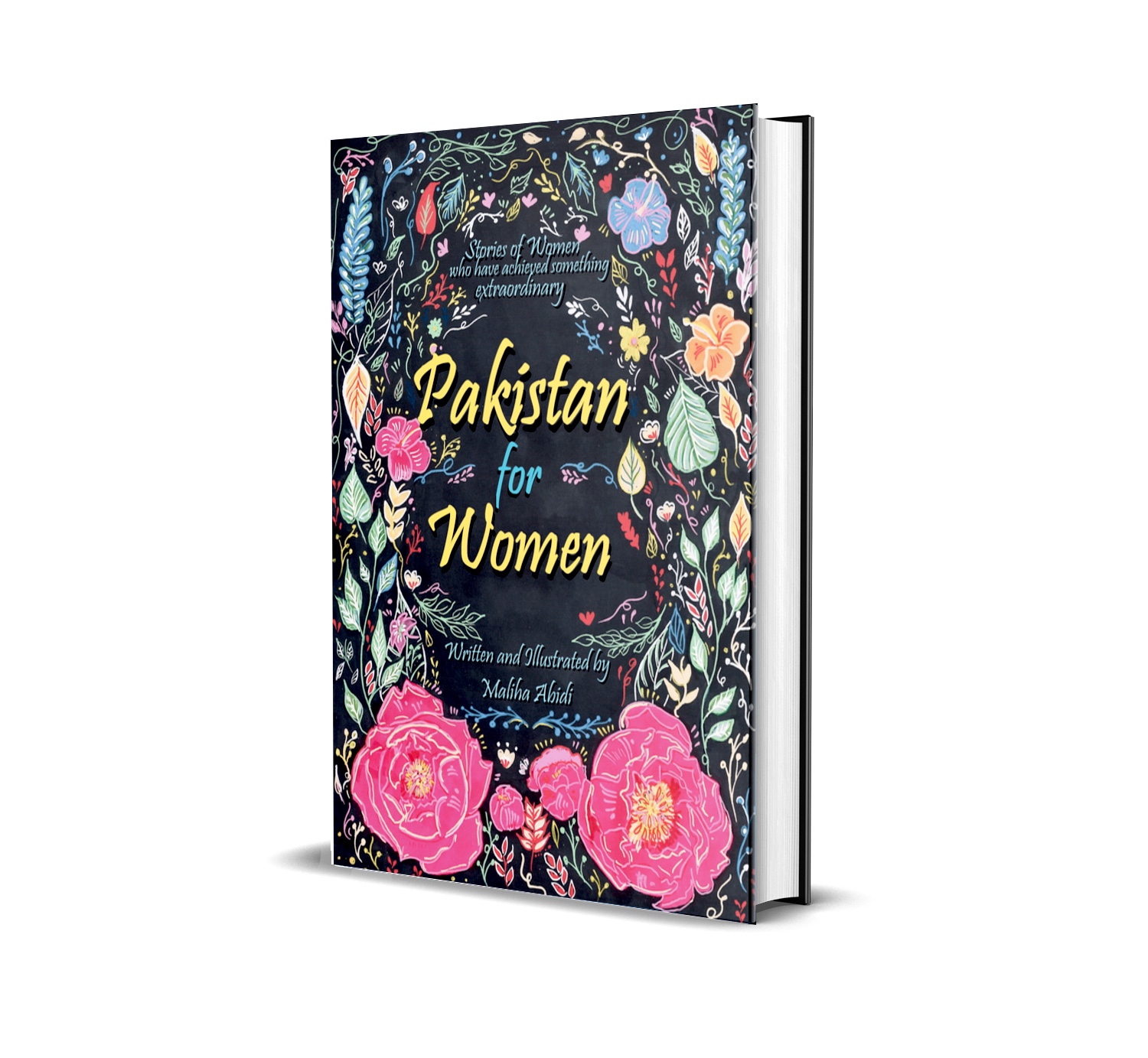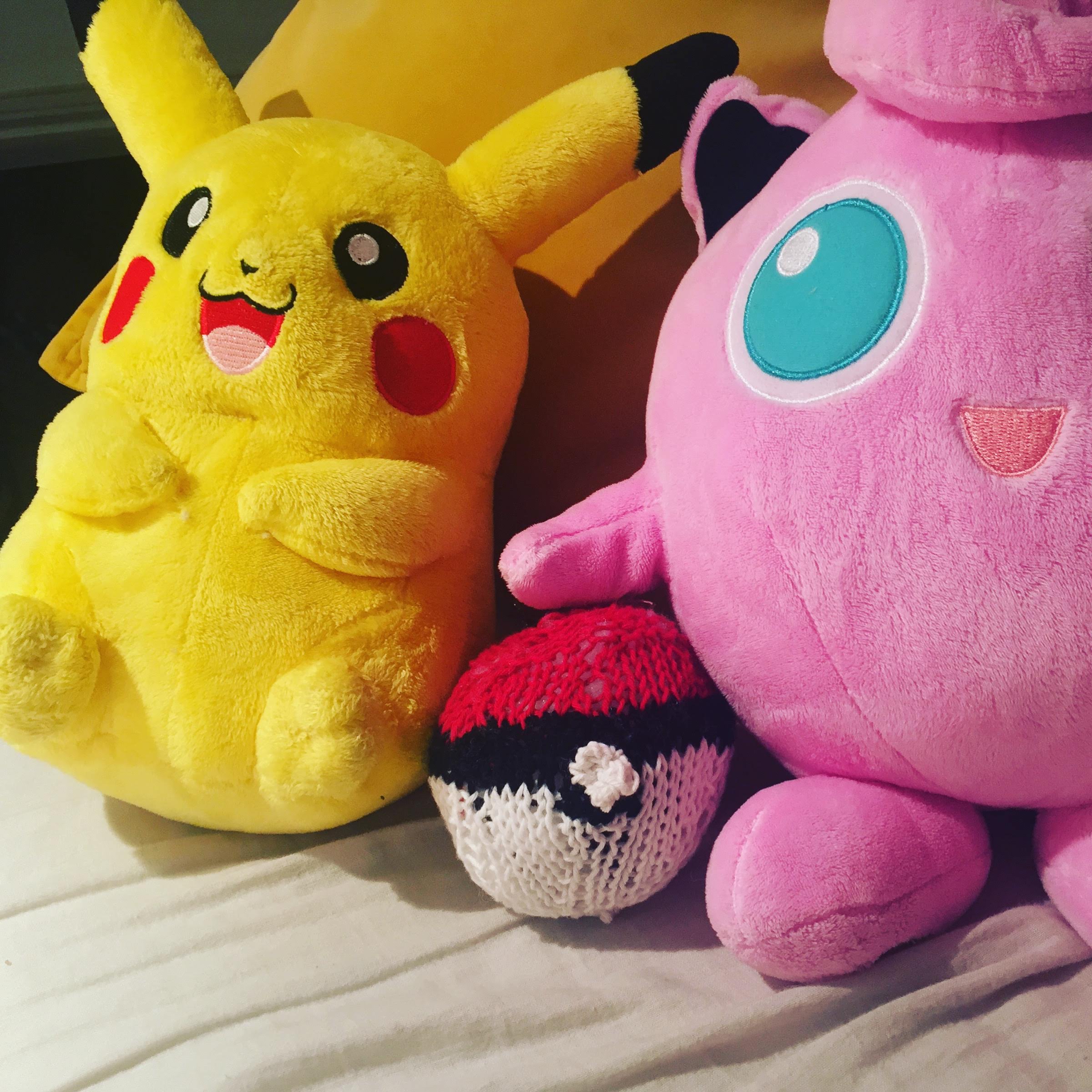Meet the author herself as we question Maliha Abbas on her new book, ‘Pakistan for Women’. An empowering must-read that is sure to grip you down to the very last page.
This edition we are lucky enough to be in dialogue with the wonderful Maliha Abbas who has produced and published an illustrative book called, Pakistan for Women. This book promotes female empowerment and the equality of the sexes, as well as being a feast for the eyes. The artistic genius and political undertone compiles this must-read that is hot off the press. Support your independent writers and artists and nab one while you can!
Can you begin by outlining what this project is about?
Maliha: ‘Pakistan for Women’ is a book that I produced, which contains more than fifty real stories of amazing women who come from Pakistan and have achieved something extraordinary while making a difference. It consists of illustrations for each woman alongside their stories.
It is the first one of its kind in Pakistan. It celebrates women from all walks of life and is designed to inspire girls and help them to understand the importance of women[s] empowerment and feminism.
What does feminism mean to you?
Maliha: To me, it is a journey of contribution towards women’s rights in order to empower them and reach equality. Feminism is celebrating women and providing everyone with equal opportunities so as our women and society can progress simultaneously.
How did you come across this amazing opportunity?
Maliha: So, this entire project was not brought to me by someone else, instead I designed it all. I always wanted to do something for women [s] empowerment and I always contributed through my art. However, reading about inspiring women gave me the idea of this book and so I designed it and started working on it, until I reached this final product.
Can you describe the processes involved within the publishing process?
Maliha: When I was planning this book, the first thing I wanted to do was curate women for it. The list could easily have been of a thousand women, but I ended up selecting a little over fifty women for it. Next was deciding what kind of a project this would be from a creative point of view. I wanted to incorporate my art into it as well as writing, so I decided to make it an illustrative book with short stories of women.
What was it like growing up in Pakistan?
Maliha: It was really wonderful. Pakistan is a surprising country because many people think of it as a dusty village or a war zone. In fact it is a beautiful country with major cities, hub, mountain ranges, even villages and everything in between.
I was always surrounded by people who boosted my confidence and encouraged me to be me. But that is not the case for everyone.
Grown ups are not perfect and I should keep in mind that just because I had a happy childhood, does not mean that everyone experiences the same situation. When I say ‘grown ups aren’t perfect’ what I mean is that they can be over-protective to a point where it can oppress expressive, unrestrained creativity.
In the spirit of playing it safe, parents sometimes do not support their kids.
Through my book, I want to celebrate examples of women who took chances, were allowed their freedom, or fought for the freedom of expression and made it.


Why did you focus on Pakistan? What does Pakistan mean to you specifically?
Maliha: Originally being from Pakistan, growing up there, facing some challenges and getting support there, I wanted to give back to the community. Pakistan has provided me with my identity, but like every society, there are problems. There are problems that I have experienced personally which are why I wanted to start with such projects in Pakistan. Also, because the world has a weird impression of Pakistan due to its ‘third world’ status, I wanted to highlight how these Pakistani women were able to achieve great heights regardless, and so every girl who believes in herself.
Have you had much reach and support since you began promoting ‘Pakistan for Women’?
Maliha: The support and response from people has been amazing. As a feminist, I feel so much joy when people see other successful stories of women and celebrate them. People have been very supportive towards this project.
How do you feel that this book could affect the wider-audience e.g. representations of Pakistan, of women?
Maliha: I hope that young women, especially in Pakistan, see that these women belong to the same land. Just like them, they can achieve greatness. Pakistan is a third world country and there are many other third world nations where women face similar challenges.
I hope this book speaks to all the girls who have ever been told that they cannot achieve something because their country is poor or people around them do not have the confidence in the potential of their own land. I hope that people who see Pakistan as merely a nation which oppresses women change their mind set towards this and they begin to see it as a nation where these women have achieved, and are still achieving, new heights.
Is there a particular story or lesson included within the book that you would like to share with readers now?
Maliha: This is probably one of the most difficult questions because all the stories are wonderful and empowering in their own right . But, I guess, a lesson I would like to share is that all of these ladies were told “no” one time or another. They were faced with doubt and discouragement yet they never stopped. Their passion towards their goal was enough to get them through, so build that passion in you whenever you start a journey. You never know how many you end up inspiring with your strength.
Where would you like to take this in the future?
Maliha: I would like to take this book to schools, colleges, universities across the world, especially within minority communities. Everyone needs to be aware of stories of strong women because with men AND women being celebrated, we have a greater chance of progressing.
For aspiring novelists, illustrators, and the like, do you have any tips that you wished you had known before this whole process began?
Maliha: You never know where that one illustration or piece of writing will take you. Each work will speak to each member of your audience differently. Do not be scared to share your flaws as a writer or an artist, rather embrace it.
Also, whenever you work on a project with passion, you will feel overwhelmed at times, always power through because it is so worth it at the end seeing your project completed.
Follow Maliha Abbas on… Instagram: @maliha_z_art Facebook: Maliha’s art

